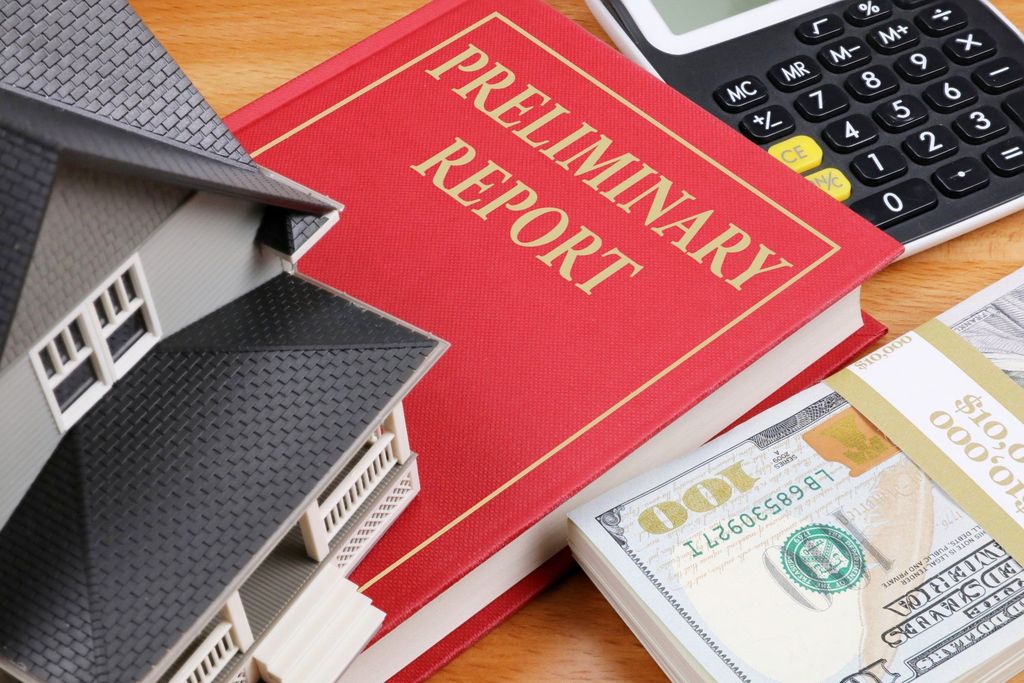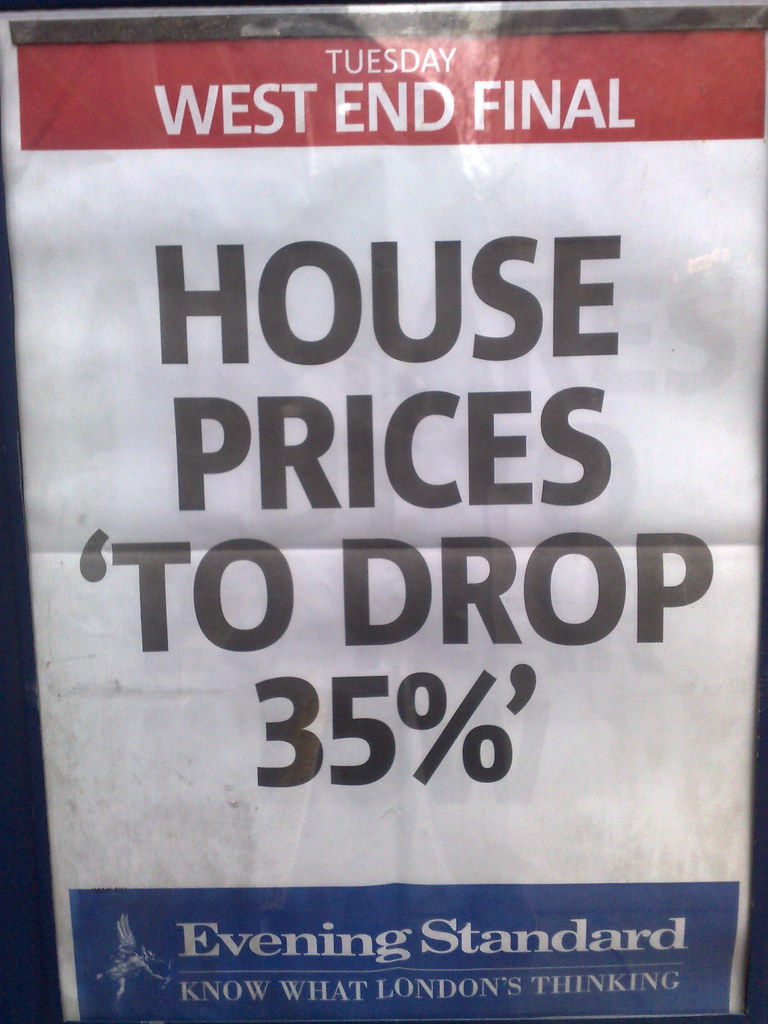
Selling a home in today’s dynamic real estate landscape requires more than just luck; it demands strategic partnership with the right professional. The decision to hire a real estate agent is a significant one, and according to Zillow’s 2024 Housing Trend Survey, an overwhelming 93% of sellers indicated they used an agent during their home sale. This highlights the widespread recognition of the value an experienced agent brings to the table, with the largest share (69%) hiring an agent specifically to promote their home and find potential buyers.
With so much at stake—from maximizing your sale price to navigating complex negotiations—the importance of a knowledgeable and diligent listing agent cannot be overstated. A skilled Realtor can expedite your home’s sale, secure a higher price, and significantly reduce the inherent stress of the selling process. Conversely, committing to the wrong agent can lead to missed opportunities and unnecessary complications, making careful selection paramount.
This in-depth guide is designed to empower you with the crucial questions every seller should ask when interviewing potential listing agents. By preparing these inquiries, you can thoroughly vet candidates, understand their capabilities, and ultimately find an agent who aligns with your selling goals and prioritizes your best interests. The key is not just knowing which questions to ask, but also understanding what constitutes a truly insightful and reassuring answer.

1. **What’s Included in Your Services?**Not all listing agents offer the same comprehensive level of service, making it imperative to clarify precisely what you are paying for when engaging their expertise. Understanding the scope of their offerings ensures there are no surprises and that your expectations are accurately aligned with their service delivery. This initial conversation sets the foundation for a transparent and effective partnership.
Standard services typically expected from a proficient listing agent include the crucial MLS listing. Your home should appear prominently on the local Multiple Listing Service (MLS), complemented by eye-catching professional photos and a compelling description crafted to capture buyers’ attention and prevent them from scrolling past. This digital first impression is critical in today’s market.
Another fundamental service is a comparative market analysis (CMA). Agents utilize their expertise to delve into local sales data, meticulously analyzing recent transactions to assist you in identifying that optimal pricing sweet spot—a figure that is neither too ambitious nor undervalues your property. An accurate CMA is a cornerstone of a successful pricing strategy, attracting serious buyers without leaving money on the table.
Furthermore, agents typically coordinate showings, which can vary in approach. Some agents will be present in person to expertly highlight your home’s best features and address buyer questions directly. Others may opt for a lockbox system, allowing buyers’ agents to tour the property at times convenient for their clients, thus maximizing accessibility. Practical tips on staging and advice are also expected, guiding you on everything from furniture arrangement to minor repairs that can significantly enhance a buyer’s perception and increase your home’s appeal.
If you are considering a flat-fee agent or the For Sale By Owner (FSBO) route, it is especially important to ask what level of support accompanies the package beyond merely listing your property on the MLS. What might initially appear as a cost-saving bargain upfront can often translate into a greater workload for you and potentially lead to a lower final sale price down the road, underscoring the value of comprehensive agent services.

2. **Is Your Fee Negotiable?**Understanding the financial aspects of an agent’s compensation is a critical component of the hiring process. It is important to know that approximately half of sellers who utilized an agent (51%) successfully negotiated a lower commission. Commission fees typically range from 3-6% of your home’s sale price, and this amount is traditionally split between your listing agent and the buyer’s agent. The crucial takeaway here is that commissions are 100% negotiable, emphasizing the importance of discussing this openly.
Before committing to any agent, it is essential to agree upon the specific amount or rate you will pay them for their services. This negotiated figure should then be explicitly included in the listing agreement, along with any other clarifying terms you both have mutually established. Clear documentation of these financial arrangements prevents misunderstandings and ensures all parties are on the same page.
There are several strategic tips you can employ when negotiating a listing agent’s fee. One effective approach is to offer to lighten their workload. This could involve taking on certain marketing tasks yourself, such as managing professional photography arrangements or overseeing social media advertising campaigns. Such contributions can demonstrate your commitment and provide a valid reason for a reduced fee.
Another valuable negotiation point is to be flexible with showings. Sellers who are amenable to short-notice visits or who provide lockbox access can significantly ease an agent’s logistical burden, making their job more efficient. Additionally, presenting a market-ready home—one that is already beautifully staged or located in a highly desirable neighborhood—can accelerate the selling process, potentially justifying a reduced commission due to the anticipated faster sale.

3. **What’s Your Experience in the Neighborhood?**Real estate, at its core, is inherently local. You need an agent who possesses an intimate understanding of why your specific neighborhood is unique and desirable, recognizing its distinct charm and valuable attributes. This goes beyond general market knowledge; it requires an appreciation for everything from the reputation of local schools to the hidden gems like a beloved tiny coffee shop that brews the best cold brew in town.
An agent’s neighborhood expertise becomes even more profoundly crucial when considering that nearly half of all sellers (48%) cite a desire for a new location as a significant factor in their decision to sell. A savvy and well-informed agent can expertly highlight all the specific neighborhood perks that are most likely to attract your ideal buyer, effectively showcasing the lifestyle and advantages your property offers. This localized insight can be a powerful differentiator in a competitive market.
When interviewing, it is certainly worth asking about their recent neighborhood sales history. Inquire, “How many homes like mine have you sold around here?” An agent who has successfully closed deals on your very street or in immediate proximity is highly likely to possess a deep understanding of its unique appeal, pricing nuances, and buyer demographics. Such direct experience is invaluable.
Additionally, probe into local value trends by asking, “What features do buyers in this area pay a premium for?” The answer might surprise you—perhaps it is the original hardwood floors you had considered replacing, or even that seemingly awkward bonus room that, to the right buyer, represents the perfect space for a dedicated home office. An agent who is truly familiar with the area will be able to speak confidently about local amenities, current buyer preferences, and explain precisely how your home competitively stacks up against other properties down the block.

4. **What Are Your Hours, and Who Will I Be Communicating With?**The real estate market operates beyond standard business hours, and crucial developments can unfold at any moment. That perfect, high-value offer, for instance, might arrive at 7 PM on a Friday evening, and you absolutely do not want it sitting unattended in your agent’s inbox until Monday morning. Prompt communication can be the difference between securing an excellent deal and missing out.
It is imperative to gain clarity on their typical response time for calls, texts, and emails, particularly during those vital evenings and weekends when a significant number of prospective buyers are actively out house-hunting. This ensures you remain informed and can make timely decisions during critical phases of your sale.
Furthermore, it is equally important to ascertain who will serve as your primary day-to-day contact throughout the selling process. You should directly ask: “Will I always deal directly with the lead agent you’re interviewing?” and “Are there assistants or team members who handle certain tasks?” This prevents any potential disconnect or confusion regarding who is managing specific aspects of your sale.
There’s nothing quite as frustrating as signing a listing agreement with a charismatic lead agent, only to subsequently discover that you will primarily be working with their brand-new, less experienced assistant. Consistency and quick, reliable communication are not merely convenient additions; they are fundamental elements essential for keeping your home sale progressing smoothly and efficiently, from listing to closing.

5. **How Many Homes Have You Sold in the Past Year?**Experience within the real estate profession is not simply a decorative phrase on a business card; it is substantiated by tangible, quantifiable results. Therefore, when evaluating a potential agent, it is crucial to request specific statistics that clearly illustrate their recent activity and overall success rate. These metrics provide a clear picture of their current engagement and efficacy in the market.
Delve into the details by asking pertinent questions such as: “How many sellers have they represented in the past 12 months?” This figure indicates their volume of activity. Additionally, inquire about “What was their average list-to-sale price ratio?” which reveals their ability to achieve prices close to, or above, the initial listing. Finally, ask, “How long did their listings typically stay on the market?” as a shorter duration often signifies effective pricing and marketing strategies.
An agent who consistently demonstrates a solid track record of sales is not merely relying on good fortune. Such an agent has invariably “cracked the code” on proper pricing methodologies, possesses a keen understanding of what truly motivates buyers, and crucially, knows precisely when to maintain a firm stance or when to strategically compromise during the intricate negotiation phases. Their proven ability to navigate these complexities is a strong indicator of their value.
For a more comprehensive understanding of an agent’s past performance, you can find recent home sale information and verified reviews on local listing agents conveniently through Zillow’s Agent Directory. This resource allows you to independently verify the claims made by potential agents and gain insights from previous clients’ experiences.

6. **Do You Already Have Interested Buyers for a Home Like Mine?**The most effective real estate agents often act as skilled matchmakers, connecting eager interested buyers with properties that perfectly align with their search criteria. It is entirely plausible that a top agent might already possess a mental shortlist of qualified buyers who have been actively and desperately searching for a home precisely like yours, even before it hits the open market. This pre-existing network can be a significant advantage.
Beyond their direct contacts, well-connected agents frequently maintain strong professional relationships with other agents who have clients actively hunting in your neighborhood. This expansive professional network can prove invaluable, especially when the goal is to quickly identify and engage qualified buyers, potentially leading to a faster sale. The context explicitly states that “Most sellers 69% said they hired an agent to help promote their home and find potential buyers.” This highlights the importance of an agent’s outreach capabilities.
Even in situations where an agent doesn’t have a specific buyer immediately lined up (which, it must be noted, is quite normal), a truly savvy agent will confidently know how to swiftly generate interest among potential home buyers. Perhaps their secret weapon is a robust Instagram following, their brokerage’s exclusive weekly ‘hot sheet’ of new listings, or a meticulously cultivated email list of individuals who previously missed out on similar desirable properties. Whatever their unique “secret sauce,” they should be able to articulate a clear strategy for ensuring your home is presented to the right demographic without any undue delay.

7. **How Do You Determine the Listing Price for My Home?**The strategic determination of your home’s listing price is arguably one of the most critical decisions in the selling process, as the right price attracts the most buyers and can effectively lead to competitive multiple offers. Your chosen agent should present a thoughtful, thoroughly evidence-based approach to pricing your home, moving beyond mere guesswork to a data-driven methodology. Expect them to meticulously walk you through a comprehensive comparative market analysis (CMA).
This CMA should carefully consider several key factors, beginning with recent sales of similar homes, often referred to as “comps.” These are properties that truly reflect your home’s size, features, and condition, providing a benchmark for valuation. The comparable homes used for this analysis should ideally be close in proximity to your property, recently sold, and similar in interior square footage. Furthermore, the CMA will also analyze active listings in your immediate area, as understanding what options buyers currently have helps position your home effectively within the competitive landscape.
When presenting the CMA, the agent should do more than just provide a verbal response or a list of comps. They should clearly explain how your home compares to each property, making precise price adjustments for key differences that can significantly impact your potential selling price. These adjustments might account for variations in square footage, overall condition, number of bedrooms and bathrooms, lot size, school district quality, or even proximity to factors like road noise.
The right asking price is absolutely paramount to maximizing your offer price and achieving a swift sale. Setting the price too high can deter motivated buyers from even considering a visit, causing your listing to stagnate on the market. Conversely, pricing too low risks leaving a substantial amount of money on the table. Therefore, it should be considered a significant red flag if a prospective Realtor cannot answer this question with a thorough, transparent explanation of how they arrived at their suggested list price, backed by solid data and clear comparisons. Be wary of agents who intentionally use inaccurate comps or questionable price adjustments to convince you they can magically sell your home for an unrealistic, ‘too good to be true’ price, as this common tactic can easily lead to your house sitting unsold.
Navigating the complexities of a real estate sale demands more than just basic representation; it calls for an agent who is a true strategic partner. As we move beyond the foundational inquiries, the subsequent questions delve into advanced techniques, contractual specifics, and a holistic assessment of an agent’s prowess, ensuring your home sale is not just successful but also maximized for value and efficiency.

8. **Do I Need to Take on Any Home Projects Before Listing to Increase Value?**Before placing your home on the market, a pertinent question for many sellers revolves around the necessity and impact of undertaking improvement projects. According to Zillow’s 2024 Housing Trend Survey, a significant 72% of sellers completed at least one enhancement project before listing their property. These initiatives varied widely, encompassing everything from cosmetic updates such as fresh paint and redecorating to more substantial upgrades like updating appliances and replacing flooring, all with the aim of bolstering appeal and potential value.
An astute real estate agent will meticulously evaluate your home’s current condition, providing tailored advice on which projects, if any, are most likely to deliver the optimal return on investment. Their expertise lies in distinguishing between genuine home improvements that can tangibly increase your home’s market value and purely cosmetic changes that might not justify the considerable time, effort, and expense involved.
The guidance received should align precisely with your specific selling objectives. Whether your primary goal is to achieve the highest possible sale price and you have the budget and time for comprehensive upgrades, or if you are looking to list quickly and are open only to minor, high-impact improvements, the agent’s recommendations should reflect these parameters. For sellers opting to sell their home in its current condition, an agent should still offer practical tips for low-cost ways to enhance presentability.
Furthermore, openly communicate whether the property will be occupied during the listing period, as an agent’s advice can often vary based on this crucial factor. Should you require assistance, do not hesitate to ask for recommendations for trusted service professionals like plumbers, contractors, or painters. Many experienced real estate agents maintain a network of reliable contacts and, in some cases, may even offer to manage aspects of the prepping process for you, streamlining the entire journey.

9. **What Are the Contract Requirements, Including the Cancellation Clause?**Engaging a real estate agent necessitates signing a listing agreement, a formal contract that meticulously outlines the terms of your professional relationship. Prior to committing, it is absolutely essential to dedicate time to thoroughly understand all its provisions. This clarity ensures that your expectations are accurately set and that you are fully aware of your contractual obligations and rights.
Key elements to scrutinize include the length of the contract. Most standard agreements typically run for periods of 30, 60, or 90 days, providing a defined timeline for the agent’s services. It is important to consider which of these timelines best aligns with your personal selling goals and market conditions to avoid unnecessary extensions or premature termination.
Crucially, a well-drafted listing agreement should clearly outline the cancellation terms. This provision specifies how you can amicably part ways with the agent should the relationship not meet your expectations or if the desired progress is not being made. Look for an agreement that offers straightforward exit options, protecting your interests if the arrangement proves unsatisfactory.
Beyond the timeline and cancellation, the contract must explicitly detail the agent’s responsibilities. This includes delineating who will manage essential tasks such as arranging professional photography, creating and distributing marketing materials, and coordinating and hosting open houses. Agents who value mutual trust will not resist including reasonable cancellation terms, recognizing that a confident, supported client is essential for a successful partnership.

10. **How Do You Plan to Market the Home?**Effective home marketing extends far beyond the rudimentary step of merely listing your property on the Multiple Listing Service (MLS). A truly proficient agent will present a comprehensive, multi-channel strategy designed to make your property distinctly stand out to prospective buyers, both within the digital realm and through in-person engagement. Their plan should articulate how they intend to capture attention and generate widespread interest.
Modern buyers have high expectations for property presentation. According to Zillow data, a significant 78% of sellers are more inclined to hire an agent who incorporates high-resolution photography, and 71% prefer an agent who offers virtual tours or interactive floor plans. In today’s intensely competitive market, these sophisticated visual features are no longer considered luxuries; rather, they are fundamental details that serious buyers now expect as standard.
When evaluating an agent’s marketing strategy, delve into their approach across various channels. Inquire specifically about their plans for professional photography and video, which are paramount for creating a compelling first impression. Ask about targeted digital advertising and strategic social media promotion, ensuring your home reaches the right demographic through platforms like Facebook, Instagram, or LinkedIn, where potential buyers actively spend their time.
Furthermore, an effective strategy should include email campaigns directed at buyers’ agents in your area, leveraging professional networks to widen reach. The plan should also cover quality print materials and eye-catching signage, reinforcing your home’s presence offline. A thoughtfully tailored marketing plan is pivotal, as it significantly increases your home’s visibility to qualified buyers, thereby enhancing the likelihood of a faster sale and a better price. For instance, selling with a Zillow partner agent can provide access to Showcase listings, which on average, help homes sell for $7,000 more.
Read more about: Stop Overspending on Your Gaming Chair: Top Alternatives Offering Value, Comfort, and Ergonomics

11. **Do You Include Professional Photography, Video Tours, or 3D Walkthroughs?**In the digital-first real estate landscape, the quality of visual presentation is absolutely paramount. Homes featuring professional photography consistently demonstrate a tendency to sell faster and generate significantly more buyer interest. When evaluating a prospective agent’s visual marketing package, it is crucial to inquire specifically about the types of advanced visual tools they utilize to showcase your property effectively.
Specifically, ask about the inclusion of High Dynamic Range (HDR) or twilight photography. These techniques are expertly employed to capture your home in its absolute best light, highlighting its architectural features and overall ambiance in a captivating manner. Engaging video walkthroughs are also invaluable, as they help prospective buyers envision themselves within the space, offering a more dynamic and immersive experience than static images alone.
Interactive 3D tours represent another cutting-edge tool that allows potential buyers to explore your property at their leisure and convenience, virtually navigating through rooms and gaining a comprehensive sense of the layout. These advanced visual marketing assets become particularly crucial in competitive markets or for higher-priced properties, where buyers have come to expect comprehensive virtual previews before committing to an in-person showing.
These visual tools are not merely enhancements; they are strategic investments that provide buyers with a richer, more detailed understanding of your property, differentiating your listing in a crowded market. An agent who prioritizes and invests in these high-quality visuals demonstrates a clear commitment to maximizing your home’s appeal and attracting serious, well-informed buyers.

12. **How Do You Write a Compelling Listing Description? Can I Review It Before Publishing?**While captivating photographs are undoubtedly essential for initially capturing a buyer’s attention, it is the thoughtfully crafted listing description that plays a pivotal role in converting that initial interest into concrete showings. A powerful description goes beyond merely reciting basic specifications; it should skillfully highlight your home’s unique features and articulate its distinct benefits, creating an emotional connection with potential buyers.
When assessing an agent’s ability to articulate your home’s value, look for someone who possesses a deep understanding of the specific features that today’s buyers in your particular market value most. They should be able to identify and emphasize aspects that resonate with your target demographic, whether it’s an updated kitchen, a spacious backyard, or proximity to desirable amenities.
Furthermore, a skilled agent will consciously avoid generic real estate jargon and clichéd, overused phrases such as “won’t last long” or “must see.” Instead, they will employ precise, evocative language that paints a vivid picture of your home’s appeal without resorting to hyperbole, ensuring the description feels authentic and informative. This nuanced approach helps your property stand out in a sea of similar listings.
Critically, a truly collaborative agent will welcome your input and actively collaborate with you before finalizing the listing description. Your insights into what makes your home special are invaluable, and a good agent will incorporate your perspectives to ensure the description accurately and persuasively reflects the property’s true essence. Effective listing descriptions are instrumental in helping buyers emotionally connect with your property and understand its distinctive appeal when compared to other homes on the market.

13. **What Role Does Social Media Play in Your Marketing Strategy? Do You Use Paid Ads?**In today’s digitally interconnected world, social media has emerged as an exceptionally powerful tool for reaching potential buyers, extending marketing efforts far beyond traditional real estate channels. When discussing a prospective agent’s digital approach, it is important to inquire about their specific strategies for leveraging these platforms to your advantage.
Furthermore, clarify whether their strategy relies solely on organic posting, or if they enhance visibility with targeted paid advertising. While organic reach is valuable, paid ads can significantly expand your home’s exposure to a precisely defined audience based on demographics, interests, and location, dramatically increasing the number of qualified eyes on your property.
Inquire about their approach to creating engaging content. This might include behind-the-scenes glimpses of your home, compelling virtual tours, or visually appealing property highlights designed to capture attention and encourage interaction. A sophisticated social media strategy can significantly broaden your home’s visibility, effectively reaching buyers who might not be actively searching traditional listing sites but are highly receptive to the right opportunity when it appears in their feed.

14. **What Online Platforms Will My Home Be Listed On?**Ensuring your listing achieves maximum visibility across the digital landscape is fundamental, especially given that today’s buyers predominantly begin their home search online. Your home should, at a bare minimum, appear prominently on all major real estate platforms that buyers frequently access, such as Zillow and Trulia, which are critical hubs for property discovery.
Beyond these flagship sites, inquire about the agent’s syndication process. Specifically, ask how quickly your listing will go live across various platforms once professional photographs are finalized. Speed is of the essence in a dynamic market, ensuring your property is seen as soon as it’s ready. Additionally, confirm whether the listing automatically distributes not only to national platforms but also to relevant local sites that may capture buyers specifically interested in your immediate neighborhood.
This comprehensive digital distribution ensures that your property reaches the widest possible audience of motivated buyers, minimizing the chance of missing out on a potential sale. A proactive agent will have a clear system in place to disseminate your listing broadly and efficiently, guaranteeing that your home is accessible wherever prospective buyers are actively searching, thereby optimizing exposure and increasing opportunities for a swift and successful sale.
Read more about: Navigating the Digital Road: A Consumer Reports Guide to Online Car Buying and Selling
In the dynamic arena of real estate, particularly within a hot market, the agent you choose is not merely a facilitator but a pivotal architect of your selling success. The foresight to ask these crucial questions transforms a speculative hiring decision into an informed strategic partnership. By rigorously vetting candidates on everything from their marketing innovations to their contractual transparency, you empower yourself to secure an agent who doesn’t just list your home, but strategically positions it for optimal value and a seamless transaction. This meticulous preparation is your ultimate advantage, guiding you toward a truly successful and rewarding home selling experience.



